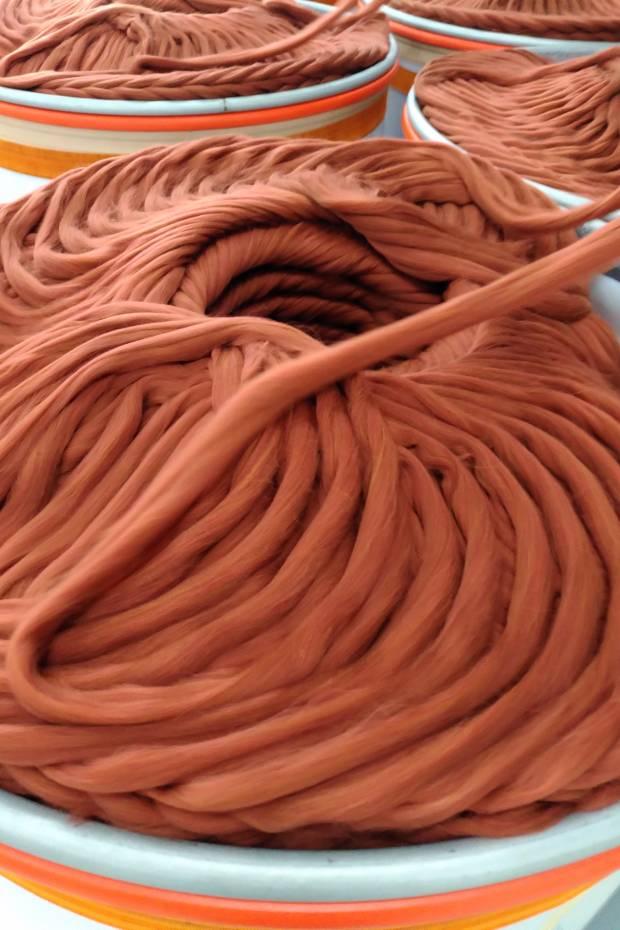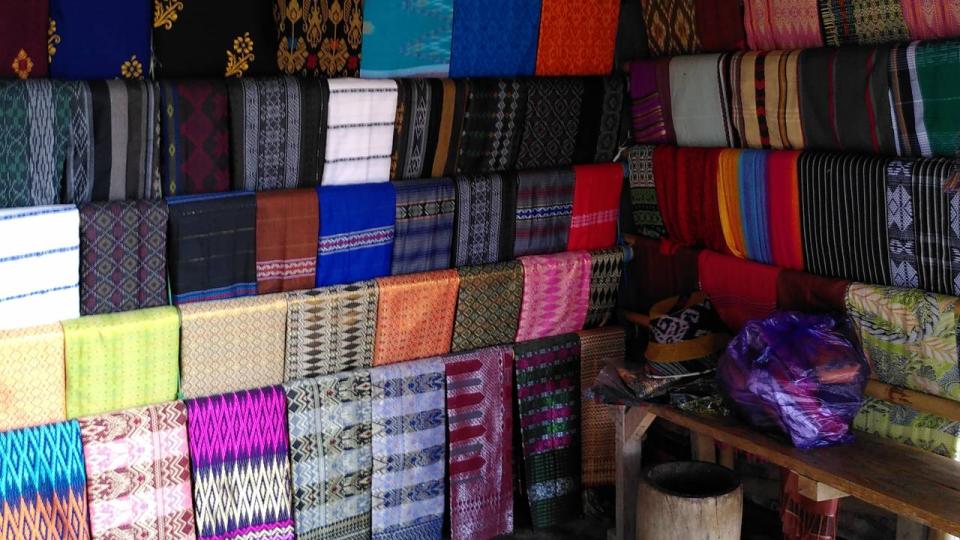The 2030 Agenda is fast approaching; we theoretically have seven years left to achieve sustainable action and show the world that we are serious about our responsibility for people and the planet. To that end, and in commitment to the Agenda’s call for sustainable action, the textile mission through Southeast Asia aimed to gain insights into the sustainable practices carried out along the textile supply chain on the ground -as well as their challenges. In exchanging knowledge and passing on practical examples to our global partners and especially the academics and students at AUST, we hope to work towards a more sustainable world together!
In addition to the social and environmental conditions of textile supply chains, I was fortunate to gain a better understanding of the industry’s deep connection to people, cultures, and integrity, as well as people's dependence on jobs, minimum wages, and the tax breaks awarded to the immense supply chains around the world. These aspects are often forgotten by consumers - but should never be ignored. The clothes we wear signify one of the most representative products of global South-North cooperation, and as such, should be treated inclusively, transparently, and responsibly, with respect to everyone and our environment.
Obstacles and avenues to sustainability on the Southeast Asian textile supply chain – an itinerary
First stop: Bangkok, Thailand
The first stop on the Mission saw me arrive at the regional office for Asia and Pacific of the International Labour Organization (ILO), as well as some renowned research institutions such as Asian Institute of Technology (AIT). Decent work is one of ILO`s key areas; promoting dignity, equality, fair income, safe working conditions, to put people at the centre of development, while giving them a voice and rights. One of ILO`s activities includes the Factory Improvement Toolset (FIT), which supports garment manufacturers to improve productivity and working conditions by upgrading production systems and factory practices. In exchange with Simona Lepri, a technical consultant at ILO, I learned how the toolset empowers workers through a bottom-up approach and allows for solutions to be developed by workers for long-term impact - including topics such as health and safety, time management, improved communication, teamwork, critical thinking, and business resilience. The initiative also shows the inclusiveness shown to the workers, as Ms Lepri succinctly explains: „One person having the knowledge will not make a difference […].“, It is clear that forces must be combined to effectively tackle current social and environmental conditions along the supply chain. Aside from discussing social issues with ILO, I was also able to speak with Professor Babel from AIT about environmental challenges and the similarities between the Thai industry and their related groundwater problems in areas where the textile industry is located, e.g., in Bangladesh. Professor Babel calls for responsible resource use across all industries – as people are dependent upon it - while his research spans from field studies to policy recommendations (you can read an example of Professor Babel's significant scope of work here).
Vietnam
A beautiful country with incredible in food, plants, and coffee, Vietnam is also known for an increasing number of textile export businesses as a result of tax benefits and its geographical location between the raw material production (sourced, for example, from Australia and New Zealand) to consumer (e.g., Asia, the Americas or Europe). I had the opportunity to visit the Dalat Worsted Yarn Spinning Facility (DWS - which is part of Südwolle Group), where I gained a fascinating insight into the sustainable commitment of these businesses. DWS is a waste-free facility (with all by-products being used in other product cycles - applying a kind of industrial symbiosis) and has used recycled products since the 90s. Along with these factory visits, I also met with bluesign -an exemplary agency focusing on sustainability standards and the provision of consultancy for businesses handling chemicals (e.g., dying, wet processing of textiles). Jennifer Vu, a representative for bluesign in Vietnam, pointed out the importance of stakeholder engagement to drive change together. When we consider the use of resources such as water and chemicals in the textile sector, consolidated action is needed - which can be guided by the SDGs. In this case, e.g., avoiding hazardous chemicals (SDG3), improving water quality (SDG6), a clean energy mix (SDG7), decent working conditions (SDG8), retrofitting industries (SDG9), sustainable waste management (SDG11) and protection and restoration of our ecosystems (SDG15) are just a few examples of improving environmental and social standards.

Indonesia
A southern state consisting of several thousand islands, a diverse range of religions and cultures is reflected in the variety of the traditional textile industry, which depicts traditional craft methods, and is home to artisans that maintain natural and ancient craftmanship to this day. While in Indonesia, I visited the UNIDO – United Nations Industrial Development Organization Project at Lombok Island, where I joined a workshop series with local textile and jewellery SMEs and artisans. This series of technical assistance – supported by UNIDO through ASSIST (Accelerating SDGs Investment in Indonesia) United Nations Joint Programme with the aim to “improve SMEs’ financial situation, productive performance, implementation of marketing and branding strategies, design of innovative and competitive products that match internationally recognised technical requirements, thereby helping them meet the growing demand from the tourism industry.” [UNIDO ASSIST Programme] These inspiring workshops were held by Lidwina Dox and Andrew Rogers, both consultants at UNIDO, to help companies to rethink their products and processes in a sustainable way: e.g. material sourcing, manufacturing process and location as well as possible expansion of customer groups, with the aim of promoting their sustainable business development and combining the traditional culture with innovative, future-oriented, and sustainable design aspects.

These examples are just some of the sustainable initiatives in place in the Southeast Asian textile industry – and all proved to be inspiring illustrations of societal and grassroots change. Knowledge sharing and collaboration are key aspects to drive change, achieve impact, and indeed, deliver the 2030 Agenda – as well as foster the Resource Nexus thinking intrinsic to the sustainable management of environmental resources.
In creating awareness of the obstacles to, and avenues for sustainable initiatives along the textile supply chain, we hope to inspire others. If you would like to learn more about our project, or if you would like to collaborate with us, please don’t hesitate to reach out to Dr Christina Froemder (froemder@unu.edu).


